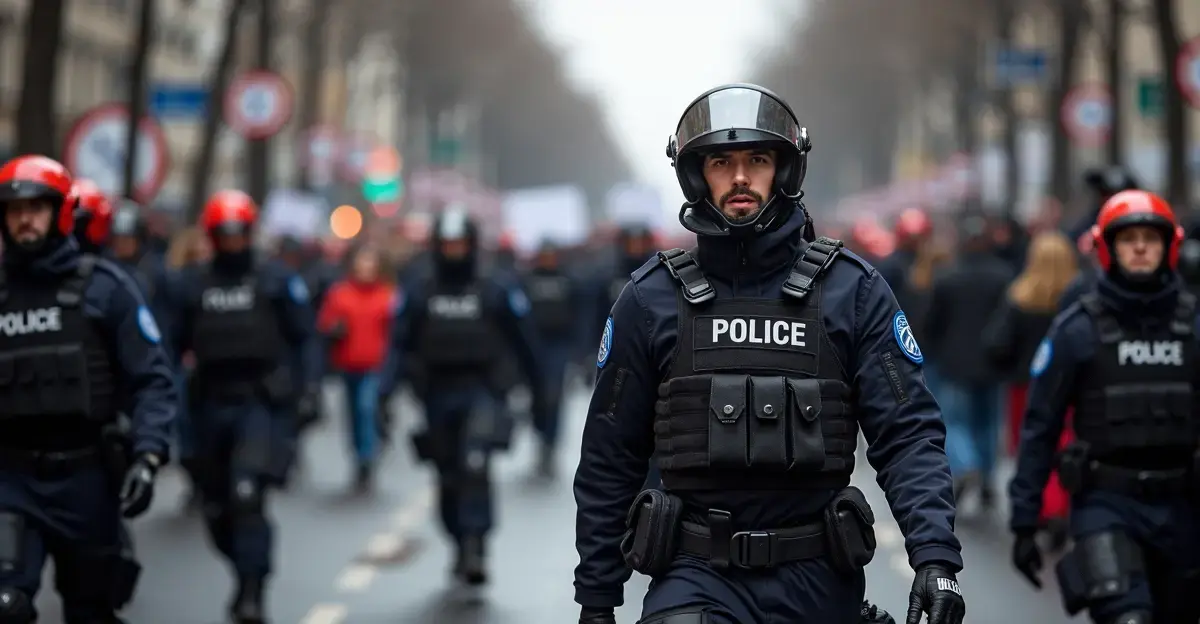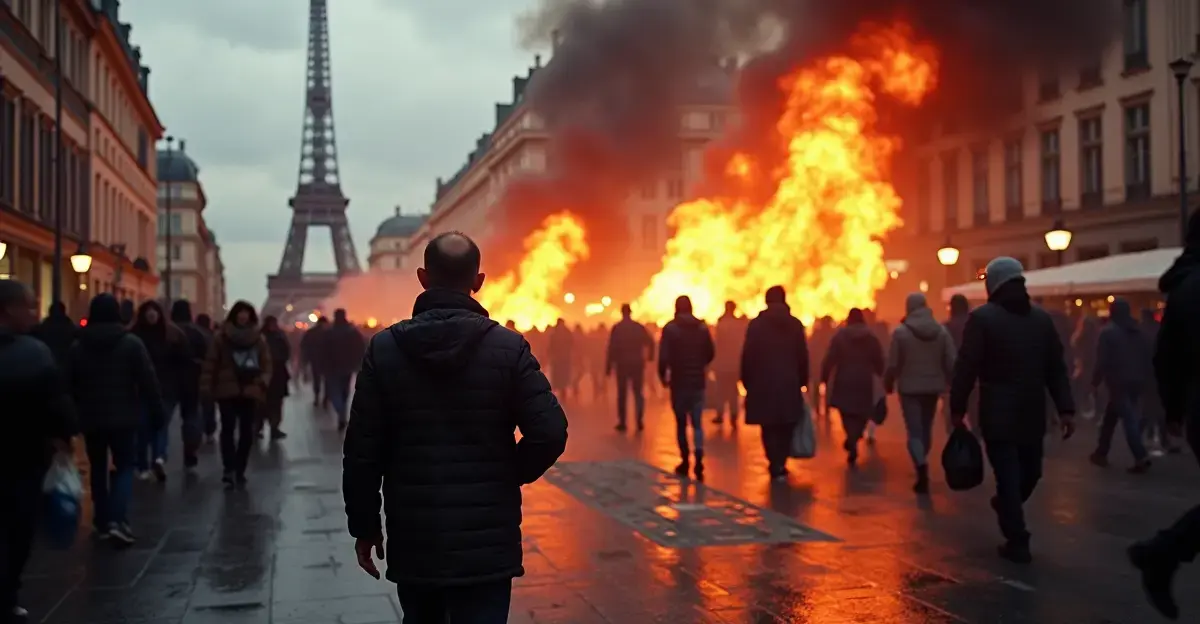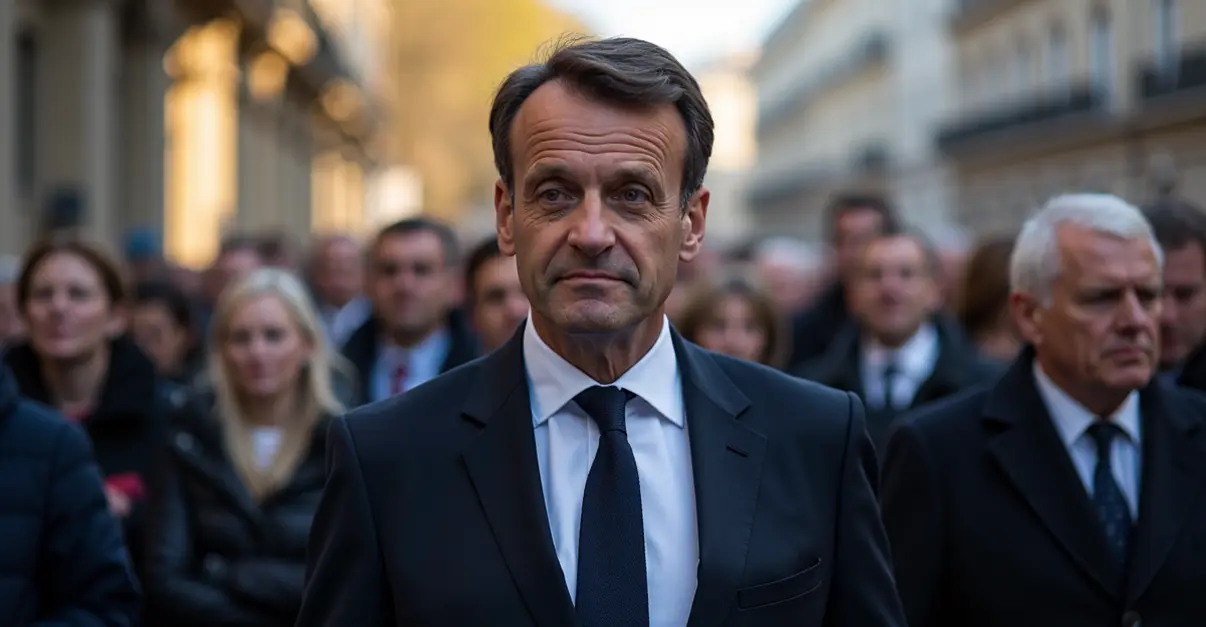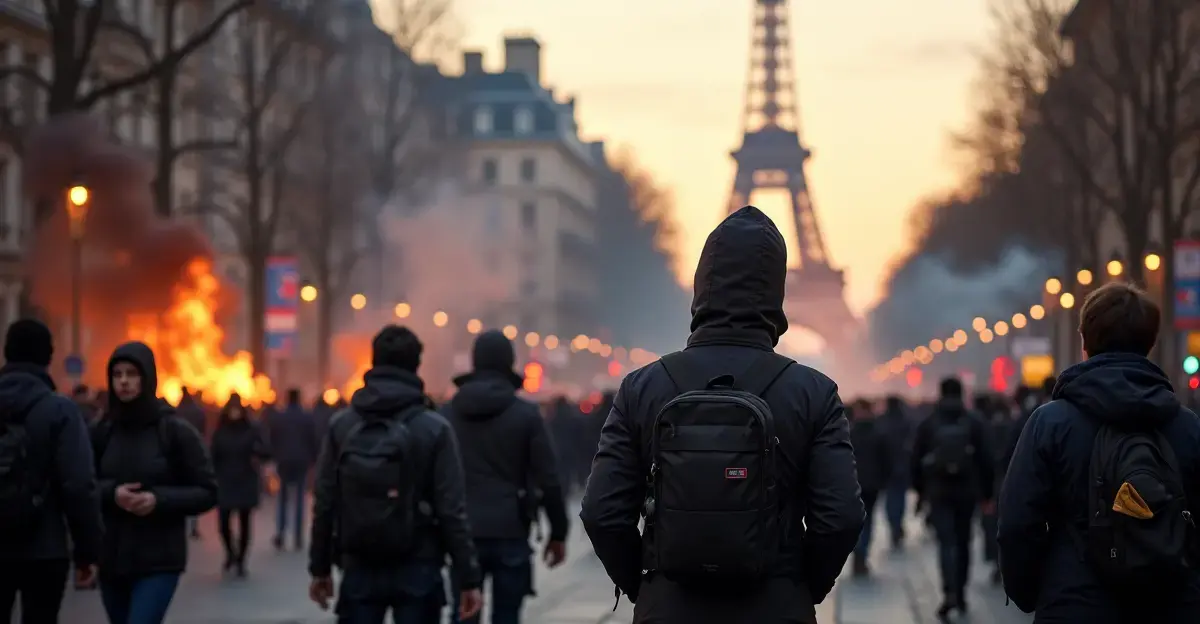France faces nationwide 'Block Everything' protests with road closures, arrests, and transport sabotage amid political crisis and austerity measures. 80,000 police mobilized.

Massive Protests Paralyze France Amid Political Crisis
France is facing widespread civil unrest as the 'Bloquons Tout' (Block Everything) movement launched coordinated protests across the country on Wednesday morning. The demonstrations, organized by an anonymous group calling for complete nationwide paralysis, have resulted in road blockades, dozens of arrests, and significant transportation disruptions.
Nationwide Disruption and Police Response
Nearly 80,000 police officers were mobilized overnight to prevent the planned blockades, but protesters still managed to disrupt traffic in multiple regions. In Paris alone, over 60 people were arrested early Wednesday morning for attempting to block intersections and setting fire to pallets. Police reported that groups tried to block access roads to Orly Airport, though security forces successfully prevented major disruptions at the transportation hub.
A police spokesperson told Le Monde: 'The situation in and around the capital at 7:45 AM was manageable but highly unpredictable.' The comment reflects the tense atmosphere as authorities struggle to contain the spreading protests.
Transportation Sabotage and Regional Impact
French rail operator SNCF reported cable sabotage at two locations, disrupting train service on the Bordeaux-Toulouse route and several lines in the Lot-et-Garonne department in southwestern France. The sabotage represents an escalation in tactics beyond the road blockades that characterized initial protests.
The western regions of France appear to be most affected, with significant disruptions reported in Caen, Nantes, Rennes, and Poitiers. Protesters, some wearing yellow vests reminiscent of the 2018-2020 Gilets Jaunes movement and others masked in black, have established roadblocks at strategic locations.
Political Context and Economic Pressures
The protests occur amid France's deepest political crisis in decades. The country is operating with its fourth prime minister in two years after François Bayrou resigned on Monday when he failed to secure parliamentary support for austerity measures aimed at addressing France's mounting debt crisis.
Bayrou had warned that France's state finances were becoming 'unsustainable' and proposed tax increases to reduce the country's massive public debt. His resignation has left President Emmanuel Macron struggling to form a stable government while facing simultaneous economic and social crises.
The 'Block Everything' movement has called for complete paralysis of roads, roundabouts, ports, oil refineries, shopping centers, and train stations. There are concerns that protesters may target speed cameras and toll stations on highways, symbols of what many French citizens perceive as excessive state taxation.
French authorities have vowed to take strong action against sabotage and illegal blockades, but the widespread nature of the protests presents significant challenges for law enforcement across the nation.

 Nederlands
Nederlands English
English Français
Français Deutsch
Deutsch Español
Español Português
Português






